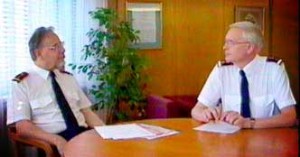If crosses come, if it should cost me dearly
To be the servant of my Servant Lord,
If darkness falls around the path of duty,
And men despise the Saviour I’ve adored:
I’ll not turn back, whatever it may cost;
I’m called to live to love and save the lost.
I’ll not turn back, whatever it may cost;
I’m called to live to love and save the lost.
If doors should close, then other doors will open;
The Word of God can never be contained.
His love cannot be finally frustrated,
By narrow minds or prison bars restrained.
If tears should fall, if I am called to suffer,
If all I love men should deface, defame,
I’ll not deny the One that I have followed,
Nor be ashamed to bear my Master’s name.
A recent song in this blog spoke of crosses, or burdens, that we are enabled to carry because of the presence of Jesus with us. This song continues the concept, with more emphasis on our voluntarily ‘taking up our crosses’ in order to help others to discover Jesus’ love and follow Him. To sing the words sincerely involves determined, courageous consecration to the Lord.
John Gowans wrote the song for Man Mark II – one of the musicals he undertook with John Larssen. (Each of these men, in succession, eventually became General of The Salvation Army.) In an interview, General Gowans said that he wrote that musical for an International Youth Congress in 1985 – a time when he was concerned about the future of The Salvation Army. He felt that Salvationists were “tending to trust in ‘chariots and horses’ instead of God.” (Psalm 20:7 refers to this in early Israelite times.) Gowans thought too much reliance was on organisation, administration, money, publicity, etc. Although some degree of these are needed, our ultimate reliance must be on the provision and guidance of God Himself.

One thinks of Christians not only in the past, but also those in the world today who are suffering for their loyalty to Jesus. May we support them with our prayers and may we all be willing and brave enough to follow Him, whatever our faith may cost us.
Matthew 16:24-25 (NIV) Then Jesus said to his disciples, “Whoever wants to be my disciple must deny themselves and take up their cross and follow me. For whoever wants to save their life will lose it, but whoever loses their life for me will find it.”
WORDS: JOHN GOWANS; MUSIC: JOHN LARSSON
S.A. SONG BOOK, 2015 EDITION, #649
REFERENCES: WWW.GOWANS-LARSSON.COM, USAWEST.ORG







